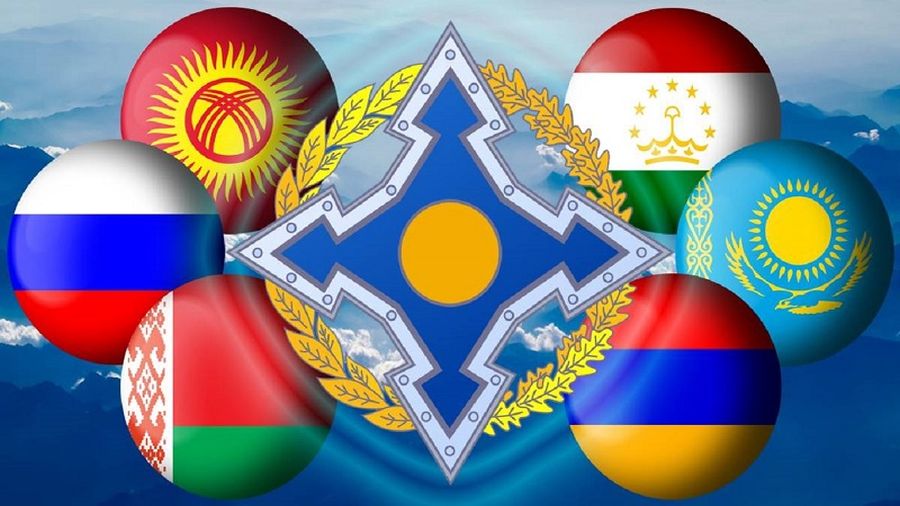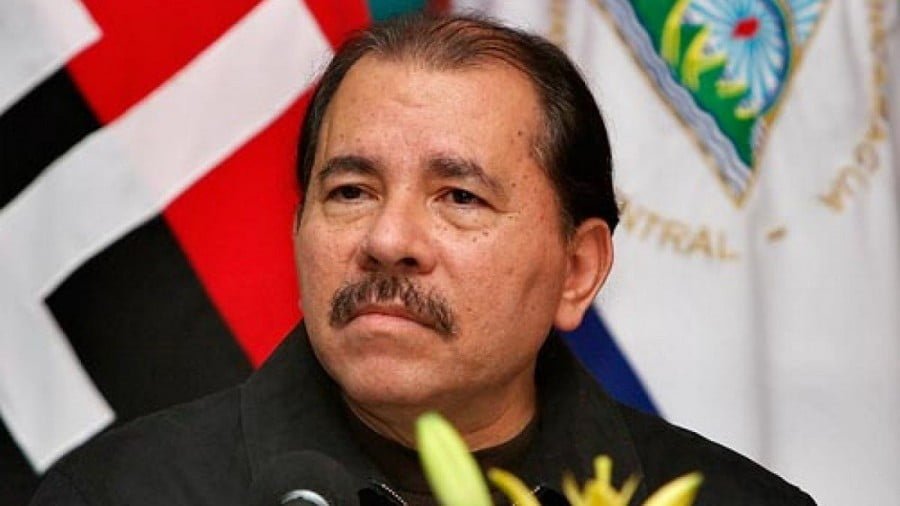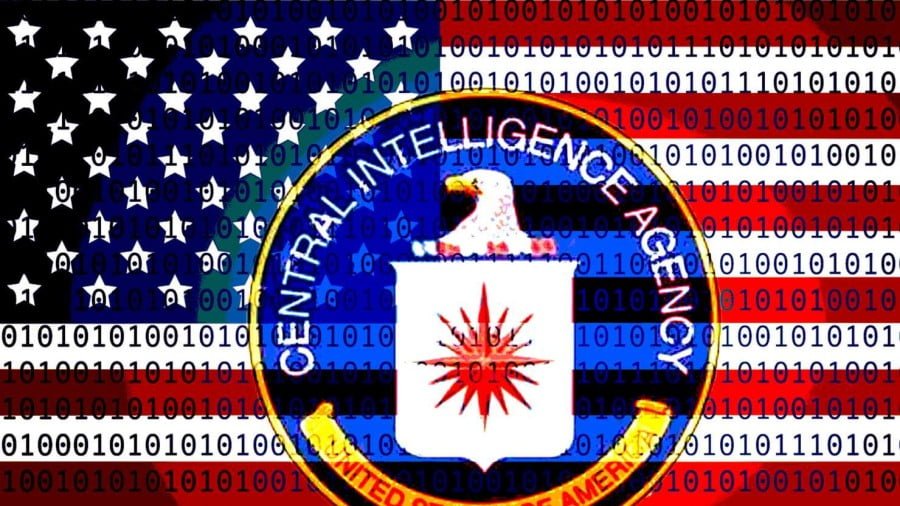The CSTO’s Impending Withdrawal from Kazakhstan Confirms Its Mission’s Success
The path forward is clear, and it’s that the military and intelligence services of the CSTO countries will build upon this success in order to more closely coordinate their activities and hopefully prevent any similar such Hybrid War of Terror from happening against any of them ever again. To this end, it would be a step in the right direction for them to formally describe their counter-Hybrid War tactics and strategies as ‘democratic security’ in order to officially introduce this concept to the wider world.
President Tokayev announced on Tuesday that the Russian-led CSTO’s limited peacekeeping mission to secure strategic facilities from terrorists has been successful in helping Kazakhstan restore its constitutional rule of law across the country. This came a day after the CSTO leaders’ summit where they agreed that what recently transpired there did indeed constitute a Hybrid War of Terror that saw a preplanned Color Revolution transform into an Unconventional War that was partially orchestrated by external forces. That’s precisely what the author assessed over the past week in his series of analyses:
* 5 January: “Kazakhstan: Petroleum Protest, Color Revolution, Or Something Else?”
* 5 January: “Anti-State Terrorists Are Attempting A Hybrid War Coup In Kazakhstan”
* 6 January: “Did The US’ Subversive Anti-Russian Deep State Faction Destabilize Kazakhstan?”
* 6 January: “The Hybrid War On Kazakhstan Had An Impact On The Russian Psyche”
* 6 January: “Debunking 10 Western Infowar Narratives About The CSTO’s Kazakhstani Mission”
* 6 January: “Kazakhstan’s January 5th Was Way Worse Than The US’ January 6th”
* 6 January: “Don’t Listen To James Dorsey: Kazakhstan Isn’t Russia’s ‘Next Ukraine’”
* 6 January: “This Is A Hybrid War Attack By Externally Linked Forces”
* 6 January: “Kazakhstan In The Throes Of A Hybrid War Crisis”
* 7 January: “It’s Not Jen Psaki’s Place To Question The CSTO’s Kazakhstani Peacekeeping Mission”
* 7 January: “Russia’s ‘Democratic Security’ vs. America’s ‘Democracy Promotion’”
* 7 January: “Analyzing Russia’s Response To Five Regional Regime Change Threats Since 2013”
* 7 January: “Kazakhstan’s President Exposed Details Of The Terrorist Threat Facing His Nation”
* 8 January: “Mukhtar Ablyazov Is A Power-Hungry Opportunistic Criminal, Not An ‘Opposition Leader’”
* 8 January: “The OSCE’s Silence About Terrorist Attacks Against Kazakhstani Media Speaks Volumes”
* 9 January: “It’s Unlikely That A Civil War Will Erupt In Kazakhstan”
* 9 January: “There Was An Attempted Coup In Kazakhstan, But It Wasn’t By President Tokayev”
* 9 January: “Politico’s Right, The US Has No Real Leverage In Kazakhstan, But That’s A Good Thing”
* 9 January: “Factual Evidence Discredits The Speculation That Turkey Destabilized Kazakhstan”
* 10 January: “Putin’s Spokesman Debunked Alt-Media’s 5D Chess Theory About Russia & Kazakhstan”
US Secretary of State Blinken, however, infamously fearmongered that “once Russians are in your house, it’s sometime very difficult to get them to leave.” That quip has since proven to have been a perfect example of the US-led fake news-driven information warfare campaign against this stunningly successful intervention. It was intended to do nothing more than blow a dog whistle to those Western Mainstream Media outlets under his country’s influence and get them to produce supplementary information products aimed at discrediting the Russian-led CSTO’s limited peacekeeping mission.
Those that dutifully followed suit have thus been exposed as agents of the US’ infowar on Russia. No so-called “Russian occupation” happened, there wasn’t any “Afghan-like quagmire”, and everything stabilized soon after this mission began. The constitutional rule of law was restored across Kazakhstan, which in turn prevented that geostrategic country’s chaotic collapse into a black hole of terrorism and subsequent large-scale violations of its citizens’ human rights. A potentially unprecedented regional security crisis was thus thwarted through this decisive intervention.
Observers should remember that it was predicated entirely on the “regime reinforcement” goal associated with Russia’s “democratic security” concept. To explain for those who might not have read the pertinent article above, “democratic security” simply refers to counter-Hybrid War tactics and strategies aimed at reinforcing national models of democracy that are under threat from externally connected Color Revolutions (weaponized protest movements) and Unconventional Wars (terrorism). It’s the opposite of the US’ destructive “democracy promotion” policy of illegal regime change.
This mission was successful in such a short amount of time because the CSTO has been preparing for this exact scenario since its inception several decades ago. Its members were aware that regional security threats worsened as a result of the US’ chaotic withdrawal from nearby Afghanistan last August. Although their military-intelligence services hadn’t detected this precise scenario in advance, there were already plans in place for how to respond to events such as last week’s Hybrid War of Terror on Kazakhstan. The CSTO allies reacted swiftly and conducted themselves professionally.
Their securing of strategic facilities across the country from terrorists freed the Kazakhstani security services to focus on urgent anti-terrorist and other law-enforcement operations. This perfect interplay between several countries’ forces demonstrated how successful their decades’ worth of training has been. It contrasts with the US and NATO’s experience in international interventions, which has always been destructive and regionally destabilizing. The West now has no choice but to begrudgingly acknowledge that the Russian-led CSTO succeeded despite fake news predictions to the contrary.
The path forward is clear, and it’s that the military and intelligence services of the CSTO countries will build upon this success in order to more closely coordinate their activities and hopefully prevent any similar such Hybrid War of Terror from happening against any of them ever again. To this end, it would be a step in the right direction for them to formally describe their counter-Hybrid War tactics and strategies as “democratic security” in order to officially introduce this concept to the wider world. From there, they can then urgently host conferences between their members for sharing their experiences.
In practice, this could see the participation of military, intelligence, political, sociological, ethnographic, historical, economic, media, and other specialists since “democratic security” concerns the whole state. It’s not just kinetic in the sense of proactively thwarting or responding to Color Revolutions and Unconventional Wars (the phased sequence of which can be referred to Hybrid War), but is also non-kinetic in preemptively managing preexisting identity tensions (political, religious, regional, socio-economic, historical, etc.) in a way that preempts them from being externally exploited in the first place.
National models of democracy are always improving, which doesn’t just make them more effective in all respects, but also aims to prevent their shortcomings from being taken advantage of by foreign forces. That’s why President Tokayev announced on Tuesday that “a transformation of relations between the state and the society is overdue. We need a new format of a social contract.” That’s exactly what the CSTO allies should work to achieve in their own states at a pace that all responsible stakeholders in their societies feel comfortable with and in line with their current conditions and national characteristics.
The full-spectrum paradigm-changing consequences catalyzed by the international community’s uncoordinated efforts to contain COVID-19 (“World War C”) accelerated preexisting socio-economic and political trends to the point where the entire future remains uncertain for all. This has caused fear among many members of the population, which in turn makes them susceptible to pernicious suggestions from hostile foreign forces that could exploit their emotions for the purpose of preconditioning them to either passively accept or actively participate in upcoming Color Revolutions.
The CSTO allies should share their experiences and expertise in order to help one another craft realistically reformed social contracts between their governments and the governed. These countries’ close economic relations (all CSTO allies with the exception of Tajikistan are part of the Russian-led Eurasian Economic Union) could be further strengthened in a synchronized manner to ensure that the largest possible share of the population prospers in the most equitable way from more integration between them.
The sustainable establishment of equitable and stable socio-economic relations will provide the solid base upon which to negotiate a reformed social contract between the government and the government. In parallel with this, the authorities must cultivate a more patriotic citizenry that learns how to responsibly express their political disagreements. This will powerfully preempt external attempts to exacerbate preexisting fault lines within society, which will thus free up the state’s military, intelligence, and law-enforcement services to focus more on criminal and terrorist threats to their state’s integrity.







